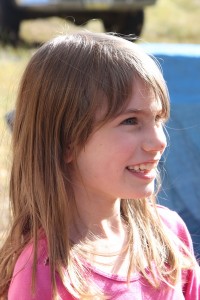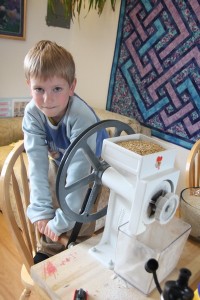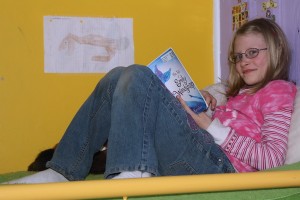Focus is a matter of deciding what things you’re not going to do.
— John Carmack
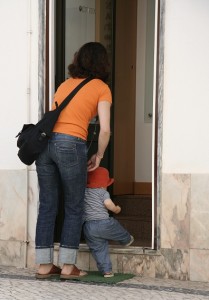
Image courtesy of Gerla Brakkee via stock.xchng
I am |this| close to making a resolution to not learn anything new this year.
But that would be silly.
I’ve made “not” resolutions before (like NOT buying books). That didn’t really work/happen/exist very long…
And I didn’t feel bad about it, either. HA!
Last night I updated my Writing page, and for the first time actually made a list of what I’m interested in– what I research, pursue and actively learn about. And it wasn’t a mile long!
Though I admit to some deceptively concise labels.
I used to think this complete listing was not possible, since I’ve watched myself latch on to any new idea that enters my line of sight. I’ll chew and taste and explore– and that willingness has sometimes made me feel like and intellectual toddler who needs to be protected from my own curiosity.
That unnamed image actually made me vulnerable to the type of person who was more interested in telling me how to think than strengthening my own ability.
It was my untrained, but still existing, ability to resist this attitude that taught me I wasn’t an intellectual toddler.

Image courtesy of Mihai Tamasila via stock.xchng
I was an explorer– an occupation which requires intense levels of maturity, initiative, adaptability and courage, words that, until last year, never entered my mind as ways to describe myself.
Much of my adult life has alternated between delighted and frantic exploring. I see something I don’t know, and rather than just enjoy it’s existence, I need to understand it– to explain it– to participate in it. Sometimes I feel behind and deficient until I am up to speed with usable information about whatever just hit my radar.
[I should qualify this to say not everything-everything is this way. I always love it when an experience completely “misses” that absorption instinct– fly-tying, bell-choir, crochet, singing alto. It allows me to absorb– and release!– that topic in a completely different way.]
Sometimes, if I cannot deliver an extemporaneous lecture on any topic (no qualifications– any topic) that leaves me feeling deficient.
Today I’m declaring that unrealistic.
I have my brief (deep) list, it encompasses more to study than I can ever use up , and it provides quite enough meat and sugar for my life and brain.
I don’t need to keep looking for new things to know.
~ ~ ~

Image courtesy of Richard McCroskey via stock.xchng
For many years I have been in the pursuit of the “right” system– that magical *something* that will make life “work” where it hasn’t before.
I’m convinced such a system exists– there are so many books about organization and time-management with great (This WORKS!) reviews– but I think now that this system is something as effective as medication for brain-based disorders. That is, about 40% effective at best.
40% is a pretty high number, and nothing to dismiss– That is a LOT of people with improved lives. Unfortunately, if any of those lots-of-people found their peace (or method) without difficulty or pain, their level of understanding and compassion or grace is diminished toward the remaining 60%.
The rest of us must learn to live in ways that schedules and methods may inform, but not master.
In 2013, my future-focused, planning-addicted self began to ask:
What if this life didn’t change? What if this is who I am, what I’ve got, and it’s everyday? Then what? Would I choose this?
I’ve found this way of thinking to be incredibly helpful for me. It actually keeps things from getting too big. As someone who goes meta really quick, it’s about the only thing that’s ever been effective:
One day at a time.
Take food as an example. We all KNOW that we’re not supposed to “diet,” as in change the way we eat, just for a little while, with the plan to return to our old ways.
If we want to be healthier we must find a way (meals, timing) to eat that we are willing to continue forever.
One day at a time.
So this is where I’m beginning the new year:
I write. Every day. Already. I don’t need a resolution to do that.
Sort of like I eat. I don’t have to plan for it to happen.
I do have to have some sort of plan if I want to reach certain goals, but this plan doesn’t have to look like anybody else’s.
The beauty of a plan, of any plan that’s worked for me, I mean, is how many decisions are already made.
And this loops back in to What you already know.
Decisions that don’t need to be made.
I do have goals, because I know where I want to end up.
But the difference this year is that I’m focusing exclusively on what I already know to do.
I know a whole. heap. of a lot. I have had experiences that worked, and have learned from things that didn’t work.

Image courtesy of Farquois via stock.xchng
For the month of January, I am doing many things (like pressing on with the writing plan I began in October), but counting the days, I am returning to a few food principles that I know work for me.
- I’m writing down what I eat– holding myself accountable for the good decisions I know I should make.
- Decide that every every meal (or snack!) I eat has to include protein.
- I will still eat deserts (while following #2), but only on the weekends.
These are all things I’ve done and sustained before. This is not an “experiment” I hope will work. These are proven strategies I’ve been too [fill-in-the-blank] to stick with.
So here it is: not a new-year-resolution, but a plan to remind myself
I have enough. already.

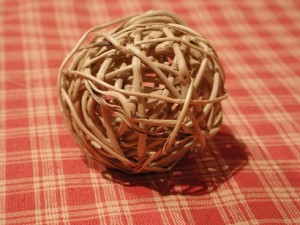





 When you go to counseling for the first time, it’s useful—for you and the therapist—to know why.
When you go to counseling for the first time, it’s useful—for you and the therapist—to know why. Co-written by me and
Co-written by me and 